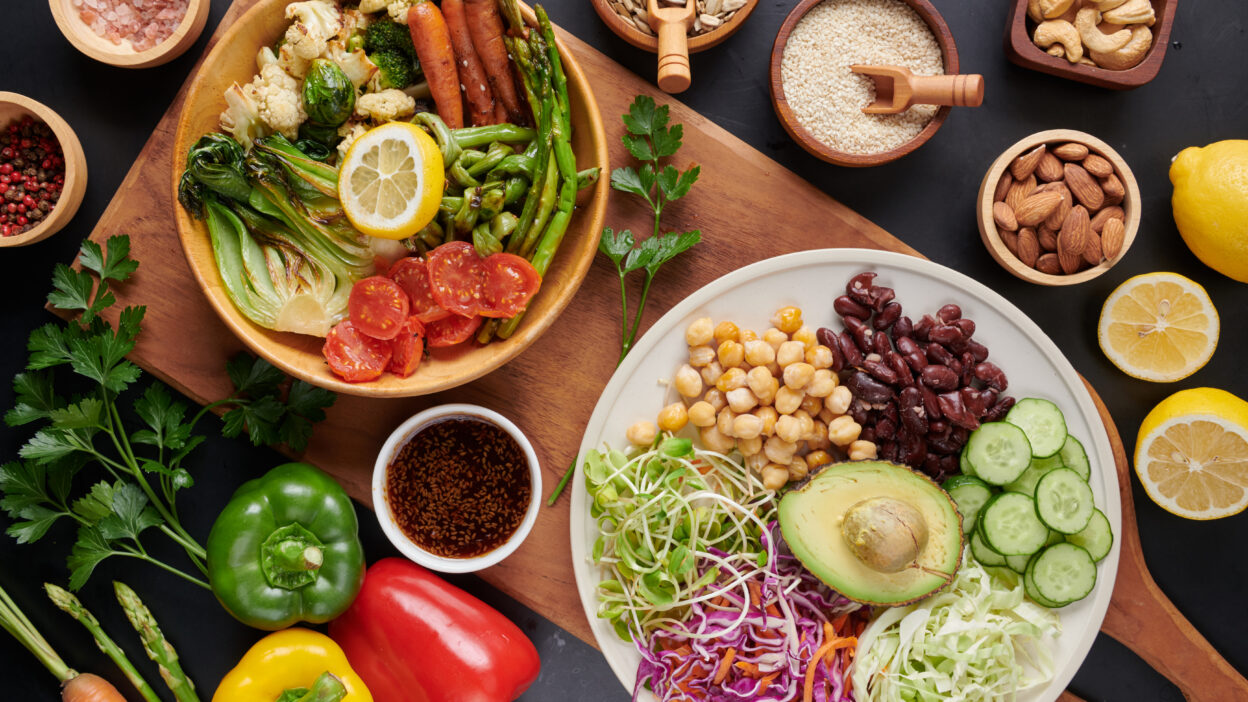Healthy Eating for Women: A Handbook for Succeeding at Every Stage of Life
Women frequently balance many responsibilities, such as being a carer, a professional, a student, and more, leaving little time for their own health. However, eating a balanced diet is essential for mood, energy, and general health. The nutritional requirements of women are distinct and change as they go through several life stages, including puberty, pregnancy, and menopause. Women can promote their health and flourish at any age by being aware of these demands and choosing foods wisely.
The Particular Nutritional Requirements of Women
Women’s bodies experience major hormonal changes starting at adolescence, which affects their nutritional needs. For example, pregnancy necessitates increased quantities of calcium and folate, while menstruation raises the need for iron.
Essential Nutrients for the Health of Women
Iron: Menstruation causes women to lose iron, which raises their risk of anemia. Fatigue, weakness, and trouble focusing are some of the symptoms. Consume foods high in iron, such as spinach, lentils, poultry, and red meat. To improve absorption, combine them with foods high in vitamin C, such as bell peppers and oranges.
Vitamin D and calcium are essential for healthy bones, particularly in older women. Vitamin D aids in the body’s absorption of calcium, which fortifies bones. The daily calcium need for women under 50 is 1,000 mg, while beyond 50, it rises to 1,200 mg. Dairy products, leafy greens, tofu, and fortified foods are all excellent sources. Aim for 600 IU of vitamin D every day from fortified milk, fatty fish, or sunshine.
Vitamin B9, or folate, is a necessary nutrient for women of reproductive age because it lowers the incidence of birth abnormalities and promotes heart health. Aim for 400 mcg per day from fortified cereals, beans, and leafy greens.
Magnesium: This element helps maintain healthy bones, muscles, and emotions. The 320–400 mg that women require each day are found in whole grains, leafy greens, nuts, and seeds.
Dietary Advice for Various Stages of Life
Breastfeeding and pregnancy: Give special attention to foods high in nutrients, such as whole grains, leafy greens, and fish. Avoid alcohol and too much coffee, and increase your consumption of iron, omega-3 fatty acids, and folate.
Menopause: Use foods high in phytoestrogen, such as soy and flaxseed, to help manage symptoms like hot flashes, and increase calcium and vitamin D to safeguard bone health.
PMS Relief: Steer clear of inflammatory foods like sugar and trans fats and consume foods high in magnesium, such as avocados and dark chocolate, to reduce cramps and mood swings.
The Reasons Supplements Are Insufficient
A balanced diet cannot be replaced by supplements, even if they can assist close nutritional gaps. A complex combination of nutrients found in whole meals support health in a synergistic way. Use supplements only as a last resort and prioritize a diet high in fruits, vegetables, lean meats, healthy fats, and whole grains.
Exercise’s Function
Regular exercise is essential for preserving bone density, muscle mass, and general health in addition to diet. Walking, yoga, and strength training are examples of weight-bearing activities that can promote metabolic health and help prevent osteoporosis.
Practical Tips for Healthy Eating
- Plan Ahead: Prepare meals and snacks in advance to avoid reaching for unhealthy options.
- Stay Hydrated: Drink plenty of water throughout the day to support digestion and energy levels.
- Listen to Your Body: Pay attention to hunger and fullness cues, and eat mindfully.
- Limit Processed Foods: Reduce your intake of sugary, fried, and processed foods, which can negatively impact health.





